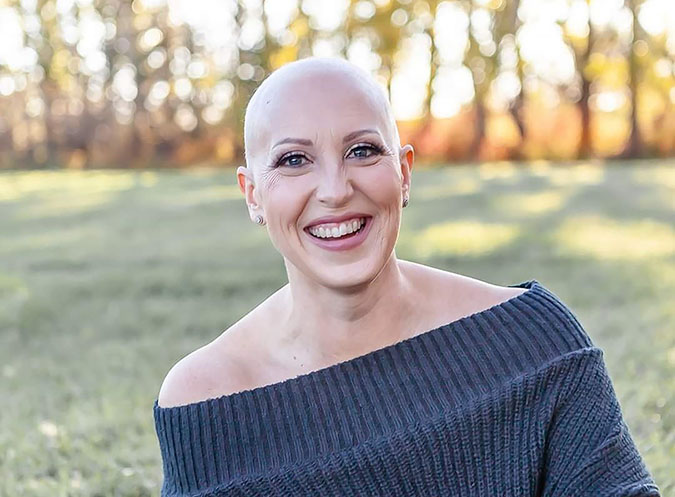
BNSF employee who battled breast cancer shares importance of early detection
By PAIGE ROMANOWSKI
Staff Writer
October is Breast Cancer Awareness Month, but for those deeply affected, it transforms into "Breast Cancer Action Month." Among these courageous individuals is BNSF Claims Representative Kerri Gortmaker, whose battle began in July 2021 when she was diagnosed with a rare but aggressive form of breast cancer.
Kerri credits her husband for encouraging her after an early symptom discovery.
“He noticed a lump and pushed me to get it checked out,” Kerri said. “I was convinced it was nothing – until it was something.”
Unsatisfied with a two-week wait time to see her primary doctor, Kerri reached out to a friend in the medical field who was able to get her a mammogram. From the mammogram, doctors noticed a mass and proceeded to do an ultrasound and then a biopsy, which led to her breast cancer diagnosis a few days later – stage 1B triple negative invasive ductal carcinoma. She met with her care team the next week – all before her original appointment with her primary doctor.
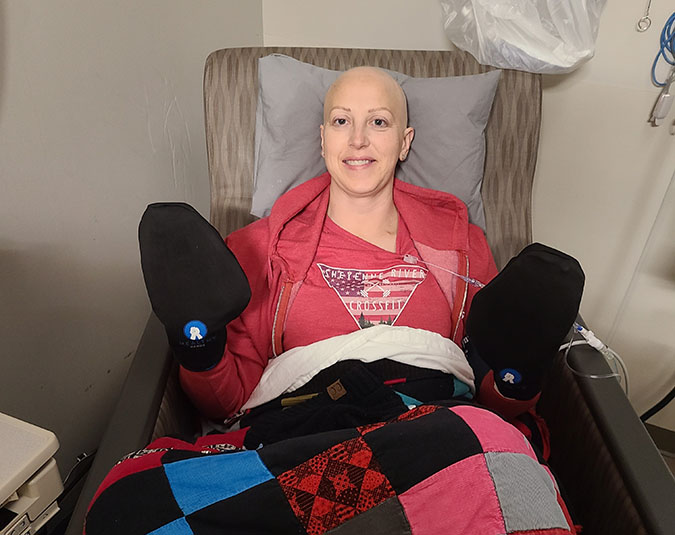
On Aug. 2, Kerri began treatment with six rounds of chemo. That December she had a double mastectomy and a total reconstruction all at once. She then took oral chemo until Aug. 2, 2022 – exactly one year from the start of her treatment. She has been in remission since.
The journey of battling cancer wasn’t easy, but Kerri relied on a range of resources and personality traits as motivation.
“With my background in law enforcement, I have a dark sense of humor, which helped get through it,” Kerri said. “And I also relied on my strong support system of family and friends.”
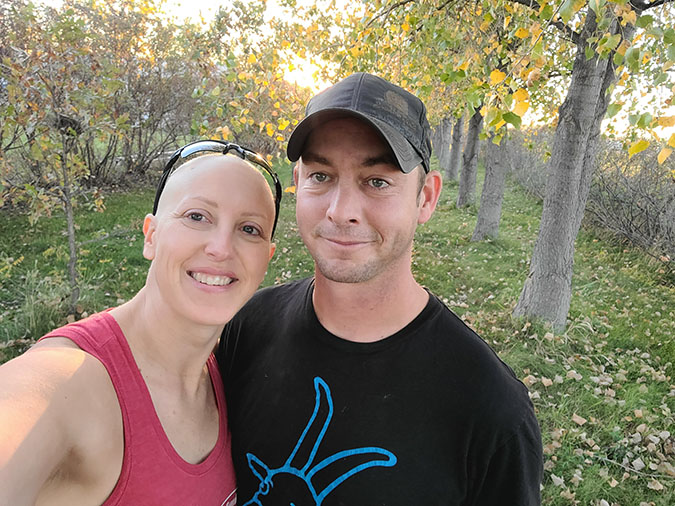
The first five years after remission are most critical because if cancer is to return it’s most likely to come back in this time. Being cancer-free for two years, Kerri feels called to take action and spread awareness for all cancers.
“Once you get to the end, you think ‘now what?’” Kerri said. “You finally start to process things and have more emotions. Mental health has been a huge thing in addition to physical health. Just because I’m back from treatment, it doesn’t mean I’m done navigating. I hope that sharing my experience can help others.”
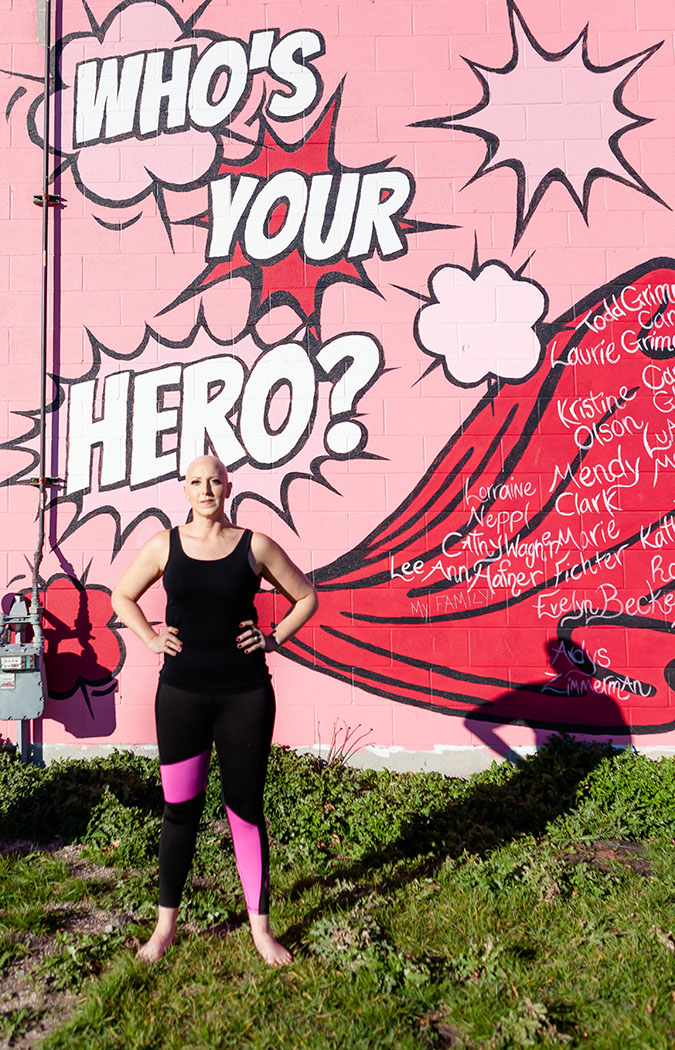
Many patients face anxiety about cancer coming back or struggle to understand going back to normal life. Kerri explained the hardest part of her cancer battle was the mental health implications following the conclusion of her treatment.
“A friend was using a therapist at our cancer center, and she recommended it – I’m so thankful I did that because it was hard to process normal life,” Kerri said. “Cancer took my strength from me. Not just my physical strength, but my personal and mental strength too. It wears on you. I lost my hair, my breasts and my high-functioning mental capacity.”
Kerri explained that the days following treatment would be filled with brain fog, and she sometimes wouldn’t remember doing things.
“Chemo brain doesn’t just go away after treatment stops, it’s a constant daily struggle to not be able to be as high functioning as I once was,” Kerri said.
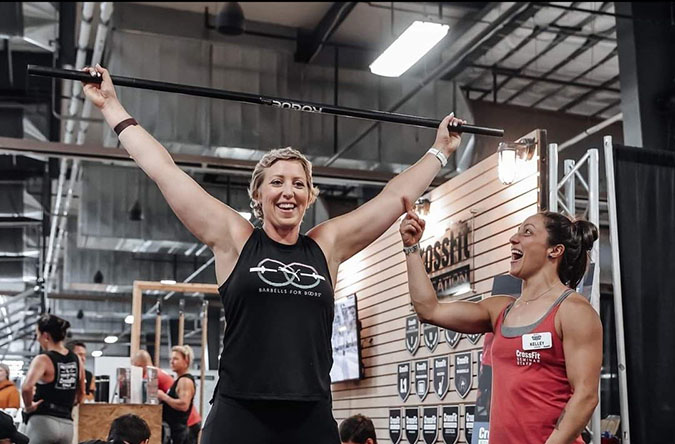
According to Kerri, finding mental health care for both patient and caregiver, staying active throughout treatment, even if it’s just going for a walk, and advocating for yourself are critical for the battle.
Kerri is also a firm believer in laughter as therapy. So, to bring a little levity to those going through chemo alongside her, she once dressed up as a T-Rex during treatment and completed a chemo round in the costume.
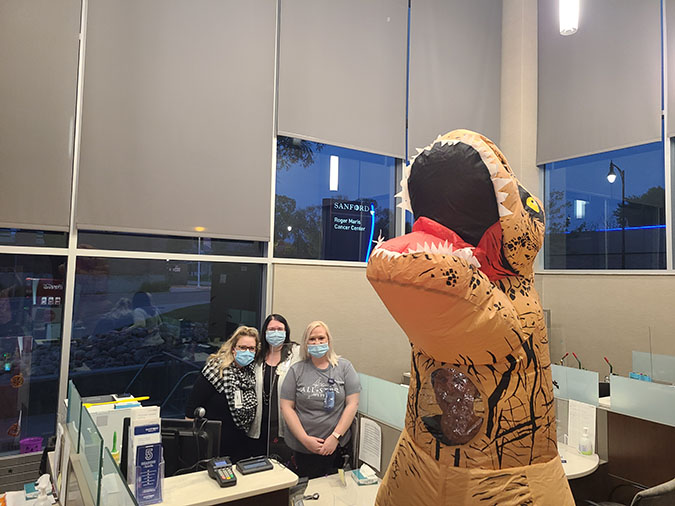
“We were there for such a crappy reason, finding any reason to laugh, chuckle, or just smile is good therapy,” Kerri said. “That day, I met a lady in the waiting area who was there for her first treatment. She asked if I did that for every treatment and I said no, but wanted to have fun today and make people smile. She told me it did and reduced her anxiety about the path ahead that day a little bit. That was a huge win in my book.”
Thank you, Kerri, for sharing your story and being an inspiration to others who are on the same journey.


